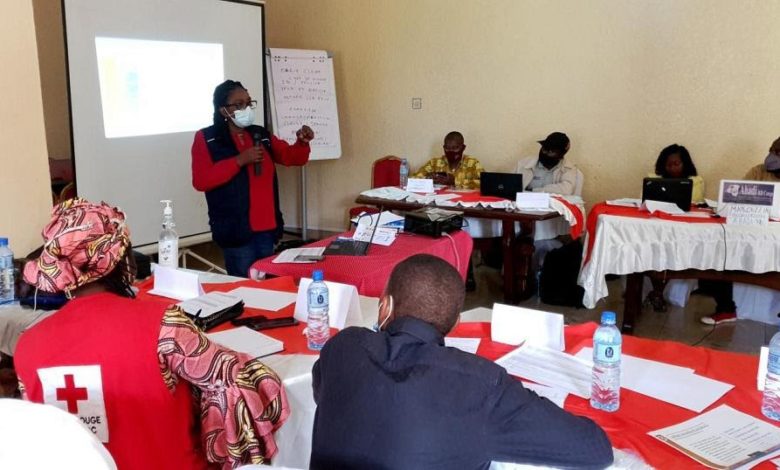WHO, UNICEF, Others Organise Training To Prevent Sexual Abuse In DR Congo
The training came as a result of a report on sexual exploitation done by humanitarian workers responding to the Ebola Outbreak in Democratic Republic of Congo.

The World Health Organisation (WHO), United Nations Children’s Fund (UNICEF) and United Nations Population Fund (UNFPA) have jointly organised a training to prevent sexual exploitation and abuse in DR Congo.
The training which was held in Beni on Wednesday, Oct. 20, was a direct response to the findings of the Independent Commission on Allegations of Sexual Exploitation and Abuse during the response to the 10th Ebola outbreak in DRC.
Dr Islande Georges Cadet, WHO Prevention of Sexual Exploitation and Abuse Coordinator in North Kivu said the training was part of the strategy to prevent acts of sexual exploitation and abuse.
Dr Islande added that these immediate actions were to ensure that all humanitarian actors intervening in the response to the Ebola resurgence can understand and respect the fundamental principles of human rights towards the affected population.
Discussing sexual exploitation and abuse during the 10th, 11th and 12th Ebola outbreaks, she said that “there was insufficient information shared with the local population on the risk of sexual exploitation.”
“The local community has the right to be informed about the risks of sexual exploitation and abuse, so that every child and adult can have access to safe, accessible and effective reporting mechanisms.”
Enyo Gbedemah, coordination team member and UNICEF child protection specialist for Maniema and South Kivu provinces said the training was important in protecting vulnerable populations against incidences of sexual abuse.
“We need to strengthen the internal capacities of all organisations involved and create an awareness of the zero-tolerance policy to sexual exploitation and abuse – what to do and what not to do,” Gbedemah said.
“Placing survivors at the heart of our concerns is essential. We must strengthen our channels for reporting sexual exploitation and abuse so that fewer cases go undisclosed.”
Christelle Nziavake, UNFPA’s Prevention of Sexual Exploitation and Abuse Coordinator in Ituri province, noted that the training drew on existing strategies for responding to gender-based violence.
“These trainings are part of an holistic, victim-centred approach to intervention,” she said.
The organisations during the training, equipped 24 trainees to address reports on sexual abuse during health interventions in their respective communities, to reiterate the zero-tolerance policy against perpetrators, and to ensure that support are given to survivors of sexual exploitation.
The trainees were also educated by the organisation to organize briefing sessions on prevention of sexual exploitation and abuse and make themselves available to support other organisations during training sessions in Beni.
Esther Vira Kavughe, one of the trainees of the Beni-based Collective of Farmers in Defence of Human Rights gave a clear assigned mandate on raising awareness.
“We have a key message to spread in our communities: to refuse any job offered in exchange for sex, especially in our regions already ravaged by armed conflict and poverty,” she said.
Support Our Journalism
There are millions of ordinary people affected by conflict in Africa whose stories are missing in the mainstream media. HumAngle is determined to tell those challenging and under-reported stories, hoping that the people impacted by these conflicts will find the safety and security they deserve.
To ensure that we continue to provide public service coverage, we have a small favour to ask you. We want you to be part of our journalistic endeavour by contributing a token to us.
Your donation will further promote a robust, free, and independent media.
Donate HereStay Closer To The Stories That Matter




